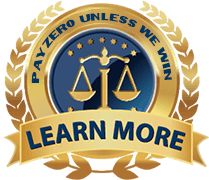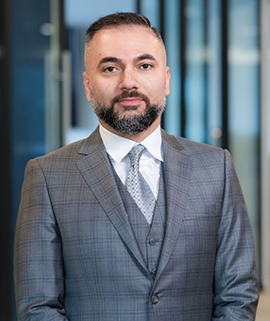Understanding Your Brain Injury
BRAIN INJURY MECHANICS
 When determining or thinking of a brain injury, it is important to realize that brain injuries are not just caused by “blows” to the head. Brain injuries can occur when there is rapid acceleration followed by abrupt or sudden deceleration. A brain injury can occur without any type of fracture or blemish to the scalp of the victim. Thus, there does not need to be a traumatic event or blunt force trauma to the brain to suffer an injury.
Other forms of cerebral injuries can be Posttraumatic Amnesia (PTA). What is PTA? PTA is a another type of indicator or sign of a brain injury and can aid in determining the severity of the brain injury. Victims who suffer from PTA are functioning and alert but have limited ability to process or retain new memories or have severe problems with understanding or remembering past occurrences.
The science behind determining your head injury involves the use of certain imaging and tomography testing including Magnetic Resonance Imaging (MRI) and Computerized Axial Tomography (CT). Each method provides a basis in determining the degree and severity of your injury. Issues such as the size of the legions, hemorrhaging and edema are all determined by the use of proper testing to determine the extent of your injuries.
When determining or thinking of a brain injury, it is important to realize that brain injuries are not just caused by “blows” to the head. Brain injuries can occur when there is rapid acceleration followed by abrupt or sudden deceleration. A brain injury can occur without any type of fracture or blemish to the scalp of the victim. Thus, there does not need to be a traumatic event or blunt force trauma to the brain to suffer an injury.
Other forms of cerebral injuries can be Posttraumatic Amnesia (PTA). What is PTA? PTA is a another type of indicator or sign of a brain injury and can aid in determining the severity of the brain injury. Victims who suffer from PTA are functioning and alert but have limited ability to process or retain new memories or have severe problems with understanding or remembering past occurrences.
The science behind determining your head injury involves the use of certain imaging and tomography testing including Magnetic Resonance Imaging (MRI) and Computerized Axial Tomography (CT). Each method provides a basis in determining the degree and severity of your injury. Issues such as the size of the legions, hemorrhaging and edema are all determined by the use of proper testing to determine the extent of your injuries.
Learn more about your options for compensation by calling (855) 339-8879.
DAMAGE TO DIFFERENT REGIONS OF THE BRAIN
The Effects of brain injury on an accident victim depends on which part of the brain was impacted. Different regions of the brain control different functions of the human body, motor functions, sight, memory, speech and learning ability.- Occipital Lobe: Located in the back region of the brain. The Occipital lobe of the human brain controls and processes visual information gathered by the eyes.
- Frontal Lobes: The most advanced region of the human brain. The Frontal lobe is the frontal region of the brain. The frontal lobe controls voluntary movement such as standing up and moving a glass from your table. Significant to our redevelopment, the frontal lobe controls our ability to organize information, solve problems, communicate, develop language and writing abilities, behavior control, and maintain an attention span.
- Parietal Lobe: The parietal lobe controls our sense of touch.
- Temporal Lobe: The Temporal lobe is locates on the two sides of the brain and control a person hearing and stores our memories.
- Injury to the right half of the brain; the right hemisphere of the brain controls the recognition and understanding of visual images and designs, understanding emotions and nonverbal communication.
- Injury to the left half of the brain; the left side of the brain controls speech and language, as well as remembering words and lines of speech.
CAUSES OF HEAD INJURIES
As stated above brain injuries can result from numerous causes. The most common cause is related to both vehicle and motorcycle accidents which cause serious head trauma. Other instances can result from falling from heights, pedestrian injuries, and certain types of assaults. Less frequent types of head injuries are those suffered by children. Such injuries are attributed to violent shaking or different types of abuse. Generally serious car accidents can result is head injuries. When you are involved in a high speed collision you may experience signs or symptoms of a traumatic brain injury.SYMPTOMS OF TRAUMATIC HEAD INJURIES
Symptoms can vary a list of certain issues can include:- Slowness;
- Personality Change;
- Poor Memory;
- Anger/Irritability/Impatience;
- Tiredness;
- Tension/Anxiety/Worry;
- Poor Concentration;
- Depression;
- Mood Changes;
- Poor Balance/Coordination;
- Restlessness;
- Higher dependence or influence by alcohol;
- Headache;
- Nausea;
- Vomiting;
- Teeth Hurting;
- Neck Pain,
- Difficulty Remembering;
- Difficulty Concentrating;
- Fog Like Feeling;
- Numbness;
- Burning Feeling in Feet;
- Irritability;
- Nervousness;
- Sadness;
- Joint Stiffness;
- Sensitivity to Noise and Light;
- Blurred Vision;
- Difficulty Sleeping/Insomnia; and or
- Fatigue
FAMILY IMPACT OF BRAIN INJURY
Unfortunately families suffer tremendously from brain injuries. The victims immediate family, spouse, children, mother, father or siblings are often confused and afraid after the injury. After the injury the spouse or immediate family take over as the role of care-giver. Often times the family is forced to face the difficult realization regarding the scope and impact of the injury. The once cheerful, bright, outgoing person has had every aspect of his/her abilities diminished. Families have a difficult time understanding the scope of the injury and how to seek treatment. Additionally, they fail to realize that the victim of the injury may likely require permanent long-term care. Family members must learn to deal with the behavioral and cognitive changes. Accepting the change and learning how to deal and cope with it is important. Understanding the mechanics of the injury and reasons for the shift in that person’s behavior is critical to helping them in their recovery. Stages of emotion include shock, denial or disbelief, sorrow, anger and adaptation to the injury.- Shock
- Initially after hearing the prognosis that your loved one has a TBI the family will suffer from shock. This shock can be exaggerated by the image of your loved one in a coma, or in the ICU unit of the hospital. In such instances the family will initially feel a sense of helplessness and fear over the outcome of their loved one. In such instances it is important to stay calm and to understand all aspect of the injury. This guide will walk you through certain key words with regards to TBI’s and help you better understand the condition.
- Denial/Disbelief
- Denial is considered a necessary psychological defense mechanism. The families denial of the extent of the injuries and there devastating impact can help them cope with the injury and help them absorb the gravity of the situation. However, long term denial should be avoided. If you continuously deny the injury then it may inhibit the recovery of the victim and will likely reduce your likelihood of adapting the injuries. Failure to accept the injuries can result in unrealistic expectations and a consistent approach or search of treatment that does not exist.
- Sorrow
- Once the parents, spouse or even children of the victim understand the nature of the injury, they can be overcome with a feeling of sorrow and despondency. Much of the sorrow is from witnessing the suffering and physical change of the persons characteristics. The parents or spouse are forced to erase or forget the lifetime of dreams, hopes or ambitions they once had for the life of their child or spouse. In a sense this period becomes the grieving period. While the length of time is not defined it can last weeks, months or even years. But it is a necessary part of the healing process.
- Anger
- TBI’s can be a source of anger for the families. The feeling of anger resonates with the families of TBI survivors. There is no defined direction for the anger. A victims family can direct their anger towards the medical team, themselves and most commonly the cause of the injury. While the anger is normal, families should be cautious and take steps to avoid consistent anger. When the anger or frustration is not properly dealt with this can lead to destructive consequences and can further destroy the inter-family relations which are already strained.
- Adaptation
- Human beings are designed to adapt. We will in time adapt to the physical conditions of the injured party and learn to deal with the condition. Adapting to the new life takes time and will eventually become a coping mechanism to dealing with the injury. Going through the stages may require intensive therapy and a strong family support system. It is important to stay connected with your family and work as a team to help overcome the difficult road to recovery.
COMMUNICATION ISSUES
Brain injuries can cause serious communication deficits with regards to your language capabilities. Communication issues are not limited to speech communication and can include the processing of thoughts or ideas as well as speech function. When you are involved in a TBI your brain can being to lack the ability to solve or develop complex thoughts or process ideas in a methodical manner. Language deficits are generally caused through closed head injuries and open head or skull fracture injuries. Lacking the ability to communicate thoughts ideas or simple language barriers are known side-effects of a TBI’s. Limited language functions are common implications of TBI cases. Victims are unable to engage in basic written language functions or verbal fluency. They often begin to stutter or develop certain language barriers which did not exist prior to the injury. In such instances any recovery or settlement should be conditioned or include the cost of added care and therapy to develop and improve the linguistic functionality of the victim.Complete a Free Case Evaluation form or call (855) 339-8879.
LEGAL ISSUES AND YOUR BRAIN INJURY CASE
Traumatic Brain Injury cases are some of the most difficult. They require an understanding of the brain and the future cost of care and treatment for the injuries. Many times such injuries are life-time injuries, requiring permanent care. A key component with your TBI case is reconstructing the event. This can be difficult because many victims suffer from Post traumatic Amnesia which prevents them from remembering the incident or the facts surrounding the injury. If the accident was a result of a motor-vehicle accident then accident reconstruction experts may be called to testify as to position of the victim and other important factors. It is important that any brain injury attorney you select is qualified in understanding your needs and assist you in procuring the highest possible benefit for your injuries. Further Information: Traumatic Brain Injury Legal Guide in PDF Over $1 BILLION Recovered
for Our Clients
YOU Deserve the Best
Free Case Review 24/7
You Don’t Pay unless we win
Call (855) 339-8879
"*" indicates required fields
Featured Lawyers
The Ultimate Guide to Brain Injury
Traumatic Brain Injury
Traumatic brain injury lawsuits
Post Traumatic Amnesia
Diffuse Axonal Injury
Post Traumatic Headache Disorder
Acquired Brain Injury
Brain Injury due to slip and fall accident
Brain Injury Victim Lawsuits
Symptoms Of Brain Injuries
What To Do After A Brain Injury
Brain Trauma Faq
Brain Injury Statistics
Traumatic Brain Injury Laws
Types Of Brain Injuries
Constant Headaches after TBI
Head injury due to Sports Injury
Intracranial Brain Hemorrhage
Paralysis Injury
Tinnitus Injuries Due To Brain Injury
Child Brain Injury
Traumatic Brain Impact
Orange County Brain Injury Attorney
Brain Damage Lawsuits
Understanding Brain Injury
Brain Injury At Birth
Coma Due To Traumatic Brain Injury
Shaken Baby Syndrome
Skull Fractures due TBI
Birth Injury Attorney Los Angeles
Repetitive Head Injury
DTLA Client Review
![]()








